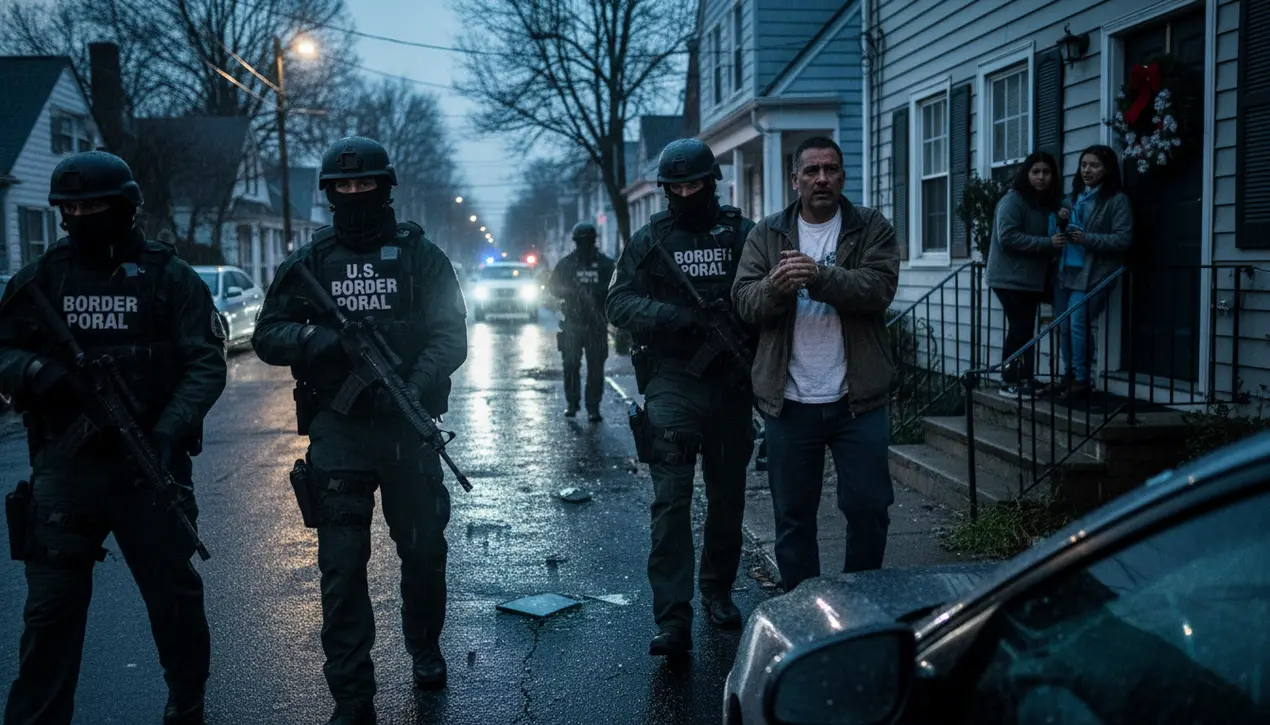
Politicsprotests & movements
Border Patrol operation rocks Charlotte with dozens arrested.
EM
Emma Wilson
4 hours ago7 min read1 comments
The streets of Charlotte, North Carolina, have become the latest front line in America's deeply polarized immigration debate, as the first day of a sweeping federal operation resulted in eighty-one arrests and sent palpable waves of fear through the community. Dubbed 'Operation Charlotte's Web' by the Department of Homeland Security, this crackdown saw masked Border Patrol agents fanning out across the city and its suburbs, detaining individuals in parking lots, outside restaurants, and even in the midst of mundane tasks like picking up construction supplies or decorating a home for Christmas.The immediate human impact was stark and visceral; immigrant advocacy group Siembra NC documented at least thirty-six separate incidents, painting a picture of a city under a form of tactical siege that has left businesses shuttered and families terrified of stepping outside. This is not an isolated event but part of a deliberate and escalating national strategy, with cities like Chicago and Los Angeles having already experienced similar surges, and New Orleans now bracing for what appears to be an inevitable federal wave.The administration's rhetoric is unyielding, explicitly blaming 'sanctuary politicians' for policies it claims allow 'criminal illegal aliens' to remain, a framing that deliberately conflates broader immigrant communities with specific criminality. Yet, on the ground, the reality appears far messier and more fraught with injustice.The New York Times reported one harrowing incident where a Hispanic U. S.citizen had his car window smashed by agents before being handcuffed and detained, only to be released later—a moment captured on video that now floods social media, fueling public outrage and distrust. DHS defended the action on social media platform X, characterizing the man as 'erratic' and accusing him of attempting to distract agents, but such official statements do little to quell the profound anxiety about racial profiling and the erosion of civil liberties.The local political friction is equally intense. Mecklenburg County Sheriff Garry McFadden, who has publicly sparred with ICE in the past, has recently touted an improved relationship with federal partners, a stance that may place him at odds with city leaders who decried the operation for causing 'unnecessary fear and uncertainty.' Meanwhile, Border Patrol Commander Gregory Bovino, overseeing the Charlotte operation, celebrated a 'record day' and the arrest of 'some good criminals,' a triumphalist tone that immigrant advocates argue obscures the true targets: everyday workers. Emanuel Gomez-Gonzalez of Siembra NC countered Bovino’s declaration, stating plainly that those detained were laborers—people putting up Christmas decorations, doing yard work at a church, simply trying to live their lives.This fundamental disconnect between federal justification and local experience is the core of the crisis. As Asheville Mayor Esther Manheimer warned that her city may be next, affirming that 'every person, regardless of immigration status, should feel safe in the community they call home,' the nation is forced to confront a difficult question: is this a necessary enforcement of law or a politically charged campaign that terrorizes communities and deepens societal divisions? The consequences will be measured not just in arrest numbers, but in the shattered trust and trauma left in its wake.
#Border Patrol
#immigration crackdown
#Charlotte
#arrests
#protests
#featured
Stay Informed. Act Smarter.
Get weekly highlights, major headlines, and expert insights — then put your knowledge to work in our live prediction markets.
Comments
Loading comments...
© 2025 Outpoll Service LTD. All rights reserved.